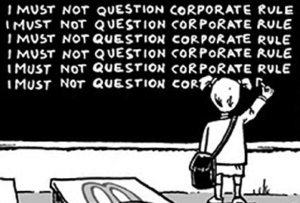Inequality was once considered a secondary issue in the mainstream economics. As recently as 2004, Nobel Prize winner Robert C. Lucas warned that studying inequality was a distraction from the core goal of sound economic analysis: promoting economic growth. By contrast, inequality has been a central concern of sociologists since the dawn of the discipline. A large body of literature in economic sociology and social stratification has examined how group boundaries, institutions, networks, and organizational processes generate, reproduce, or eliminate inequality.
In this and subsequent blogposts I plan to explore how sociologists think about inequality and how that is different from mainstream economists. What are the fundamental assumptions of the two disciplines? What are the causes of the rising inequality in the United States and other advanced economies? When does inequality become too much of a good thing? What kind of policies should be adopted to reduce inequality in the near and long term? As we will see, sometimes economists and sociologists hold drastically different views when examining the same empirical evidence but at places we agree as well.
My goal is not to present an overly simplistic picture or to caricaturize how sociologists or economists think about inequality. I am acutely aware that there are heterogeneous views in both enterprises and that one can find plenty of exceptions to any claims about the two disciplines. Nor do I attempt to arbitrate which is the right way to think about inequality. Rather, the point here is to stimulate a new, interdisciplinary economic thinking by juxtaposing two representative ways of thinking.
For this post let’s start with the fundamental assumptions about how earnings are distributed among workers. It is fair to say that the majority of economists and sociologists agree that the distribution of earnings is jointly shaped by supply, demand, and institution. However, there is a wide disagreement in terms of the weights of each force. Mainstream (labor) economics acknowledges the significance of institution but believes that supply and demand largely determine the wages in market economy. As such, the temporal or cross-sectional variation in wages represent current or past changes in either supply or demand, which are generally not directly observable. From this perspective, rising inequality represents an increasing demand for skilled workers or decreasing demand for the less skilled, which is in turn driven by technological advancement, immigration, and trade openness.
So how do sociologists think differently? To be clear, many sociologists agree that supply and demand matter and in fact have accumulated substantial research on how various closure mechanisms (e.g. licensing and other forms of discrimination) could suppress labor supply and therefore boost incumbents’ earnings. Most sociologists, nevertheless, believe that formal and informal institutions are more critical in explaining the rising inequality observed in advanced economies. In this light, changing institutions such as the ascendance of shareholder-centered corporate governance model, finance-friendly policies since the late 70s, credentialism, and deunionization all contribute to the earnings dynamics at different parts of the distribution.
This contrast has roots in how two disciplines view labor market or other form of exchange. Many economists are convinced or working under the assumption that the labor markets in capitalist societies are in general competitive. After all, there is no reason for rational employers to purchase labor at a higher price than necessary or for employees to take worse job offers. Some economists further believe that the Efficient-market Hypothesis, to a large extent, holds true in labor market, and thus that any change in wages is mostly a result of variation in supply and demand.
Sociologists, on the other hand, tend to assume that economic agents have fairly limited market information and therefore constantly seek guidance from institutions and the behaviors of their high-status peers. Furthermore, sociologists emphasize that the decisions made by economic agents are co-determined by the pursuit of non-economic factors, including legitimacy, distinction, trust, social relationships, and morality. In addition, sociologists consider a much wider set of institutions when it comes to the issue of inequality. In addition to the common targets such as labor unions, minimum wage legislation, trade, and tax policies, an established body of sociological research examines the roles of criminal justice, neighborhood, social movements, corporate governance, and racial relationships in determining distributional outcomes.
It is not clear whether we have sufficient evidence to decide whether supply/demand matters more than institutions, but it could be helpful to problematize these assumptions. Most likely, the weights of these two dynamics are variable across social contexts. The increasing popularity of intermediary websites like Elance could mean that, for certain segments of the labor market, the buyers and sellers of labor do have full access to the market information, and therefore supply and demand have a greater influence in determining the price of labor. In the meantime, it might be presumptuous to believe that a similar transparency exists across the whole labor market.
In the next post, I plan to explore in greater detail how different imaginations of market shape our thinking on inequality.



